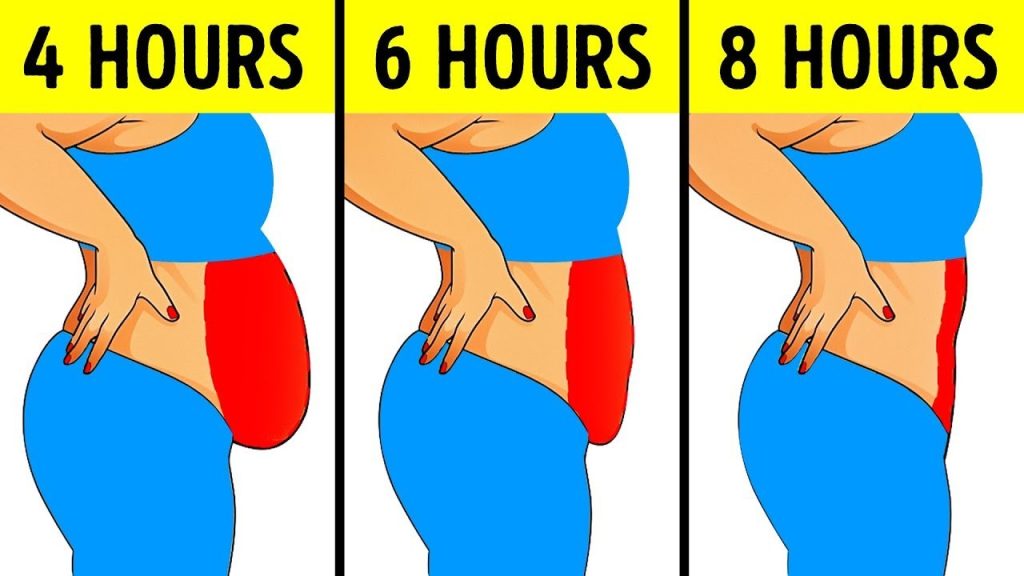The pursuit of quick and effective weight loss is a common goal for many individuals seeking to improve their health and well-being. While the desire for rapid results is understandable, it’s crucial to approach weight loss with a focus on both speed and sustainability. In this comprehensive guide, we’ll explore the fastest way to lose weight by incorporating evidence-based strategies that prioritize health, balance, and long-term success.
Maybe you are interested: Top 10 Weight Loss Supplements
- Set Realistic Goals:
The first step in any successful weight loss journey is to set realistic and achievable goals. Rapid weight loss is often associated with fad diets and extreme measures, but sustainable changes are more likely to yield lasting results. Aim for a gradual weight loss of 1-2 pounds per week, which is considered safe and sustainable.
- Balanced Diet:
a. Caloric Deficit:
The foundation of any effective weight loss plan is a caloric deficit, where you consume fewer calories than your body needs to maintain its current weight. However, extreme calorie restriction can be counterproductive, leading to nutrient deficiencies and a slowed metabolism. Aim for a moderate caloric deficit by reducing your daily intake by 500-1000 calories.
b. Macronutrient Balance:
Focus on a balanced intake of macronutrients—protein, carbohydrates, and fats. Protein is essential for muscle preservation during weight loss, while carbohydrates and fats provide energy. Opt for whole foods, emphasizing lean proteins, whole grains, and healthy fats.

- Regular Physical Activity:
Exercise is a key component of any weight loss plan. Combining cardiovascular exercises, such as brisk walking, running, or cycling, with strength training helps burn calories and build lean muscle. Aim for at least 150 minutes of moderate-intensity exercise per week, along with two or more days of strength training.
- Hydration:
Staying adequately hydrated is crucial for overall health and can support weight loss. Sometimes, the body can misinterpret thirst as hunger, leading to unnecessary calorie consumption. Aim to drink at least 8 glasses (64 ounces) of water per day and more if you’re physically active.
- Prioritize Sleep:
Inadequate sleep can negatively impact weight loss efforts. Poor sleep disrupts hunger hormones and increases cravings for unhealthy foods. Strive for 7-9 hours of quality sleep each night to support your body’s natural weight-regulating mechanisms.
- Mindful Eating:
Practicing mindful eating involves paying attention to your body’s hunger and fullness cues. Avoid distractions while eating, savor each bite, and listen to your body’s signals. This can prevent overeating and promote a healthier relationship with food.
- Meal Planning and Preparation:
Planning meals in advance and preparing them at home can contribute significantly to weight loss. This allows you to control portion sizes, choose nutritious ingredients, and avoid the temptations of fast food or unhealthy takeout options.
- Limit Processed Foods and Added Sugars:
Processed foods and added sugars often contribute excess calories without providing essential nutrients. Minimize your intake of sugary beverages, snacks, and processed foods, and focus on whole, nutrient-dense options.
- Behavioral Changes:
a. Emotional Eating:
Address emotional eating by finding alternative coping mechanisms for stress, boredom, or emotional distress. Engage in activities such as exercise, meditation, or hobbies to manage emotions without turning to food.
b. Support System:
Building a strong support system can significantly impact your weight loss journey. Share your goals with friends, family, or a support group, and consider seeking the guidance of a registered dietitian or fitness professional.
- Consider Professional Guidance:
If you find it challenging to navigate the complexities of weight loss on your own, consider seeking professional guidance. A registered dietitian or nutritionist can help you create a personalized and sustainable meal plan, while a fitness trainer can design an exercise routine tailored to your needs.

- Avoid Extreme Measures:
Extreme diets, detoxes, or very low-calorie plans may promise rapid weight loss, but they often lead to nutrient deficiencies, muscle loss, and can be unsustainable in the long run. Opt for balanced and gradual approaches that prioritize your overall health.
- Track Progress:
Monitor your progress regularly, but focus on more than just the number on the scale. Track changes in energy levels, mood, and overall well-being. Celebrate non-scale victories, such as improved fitness levels or better sleep.
Products for you:Best Natural Weight Loss Supplements
Conclusion:
The fastest way to lose weight is one that prioritizes your health, sustainability, and long-term success. Rapid results achieved through extreme measures are often short-lived and can have adverse effects on your well-being. By adopting a balanced approach that includes a realistic caloric deficit, regular physical activity, mindful eating, and support from professionals or a community, you can achieve lasting and meaningful weight loss.
Remember that each individual’s body is unique, and what works for one person may not work for another. Be patient, stay committed to a healthy lifestyle, and embrace the journey toward a happier and healthier you. Weight loss is not just about shedding pounds; it’s about cultivating a sustainable and balanced relationship with food, exercise, and overall well-being.
See more: Saxenda for Weight Loss: A Comprehensive Guide to a Transformative Medication

